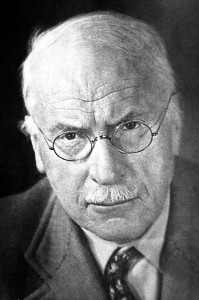
One of the many things that fascinates us about our dreams is that they hint at an alternative life. Anyone who has ever tried to recapture or re-enter a dream knows that dreams live in us but are autonomous and impervious to our will. They visit while we sleep, transporting us to landscapes real and surreal, offering wild and awesome narratives, oracular portents, and often hilarious outcomes. The uncanny wisdom or cleverness or solemn warnings of our dreams seem to have everything and nothing to do with us.
To compound the paradoxical mystery of dreams, they are intensely personal, often repetitive, and yet share common themes with the dreams of others. We arrive too late for the train. We are unprepared for the big exam. We forget our house keys, lose our eye glasses. Our hair falls out, our teeth are loose, the toilet is plugged. We lift our arms and fly away. The commonality of some dream images points to universal or archetypal motifs in the human psyche, yet each dream is unique to the dreamer, its meaning and relevance part of an intimate and individual portrait of a singular unconscious.
“The dream is a spontaneous self-portrayal, in symbolic form, of the actual situation in the unconscious,” writes Carl Jung in The Collected Works. (Vol. 8, para 505)
 After splitting with his friend and mentor, Sigmund Freud, Jung went on to develop his own theories of dream interpretation. For Jung, they were not manifest representations of repressed (latent) Oedipal conflicts and unresolved childhood wish-fulfillment interpreted against a more or less static system of symbol equivalents (snake=phallus; cave=womb); for Jung, dreams are a dynamic aspect of our evolving psyches.
After splitting with his friend and mentor, Sigmund Freud, Jung went on to develop his own theories of dream interpretation. For Jung, they were not manifest representations of repressed (latent) Oedipal conflicts and unresolved childhood wish-fulfillment interpreted against a more or less static system of symbol equivalents (snake=phallus; cave=womb); for Jung, dreams are a dynamic aspect of our evolving psyches.
According to authors Edward Whitmont and Sylvia Brinton Perera in Dreams, a Portal to the Source, “Each dream may be seen as aiming toward a widening of awareness. It offers comment, correction, and contributions toward problem solving. Thereby, it strengthens, coalesces or balances the dreamer’s waking views, and, thus, it serves as an important vehicle to support psychological development.”
Dreams may challenge our assumptions of who we are or may fill out what we don’t already know about ourselves. Jung believed dreams do serve in a compensatory or complementary manner by informing the conscious mind of ignored, overlooked, or denied aspects of self, prompting the dreamer with dream-dramas and narratives the ego has tuned out. Concerning this compensatory function of dreams, Jungian analyst Dr. Murray Stein wrote me: “It’s important to understand that Jung’s use of the term ‘compensation’ means ‘adding to’ and ‘balancing’ and with a prospective, forward-looking meaning that facilitates individuation.”
Viewed from this perspective, the dream is our friend, our ally, our guide over a lifetime. It presents truths that have not yet reached the level of our conscious awareness.
In The Meaning of Psychology for Modern Man, Jung wrote, “In each of us there is another whom we do not know. He speaks to us in dreams and tells us how differently he sees us from the way we see ourselves.”
 In dreams, we step out of the ego world of order and certainty into the domain of the interior, where we may discover our true selves and the path to our destiny. In his essay, “Jung’s Contributions to Psychoanalysis,” Dr. Stein writes, “With the notion of transformation (Wandlung), Jung introduced dramatic openness and flexibility into the psychic system and laid the groundwork for considering the possibility of prolonged psychological development throughout the lifespan, i.e., the individuation process. With his understanding of the symbol, he radically overcame the prevailing intellectual tendency in psychoanalysis toward reductionism, including psychological reductionism and not only biological reductionism. Together, these two terms open a vast space for investigating the reality of the psyche . . .”
In dreams, we step out of the ego world of order and certainty into the domain of the interior, where we may discover our true selves and the path to our destiny. In his essay, “Jung’s Contributions to Psychoanalysis,” Dr. Stein writes, “With the notion of transformation (Wandlung), Jung introduced dramatic openness and flexibility into the psychic system and laid the groundwork for considering the possibility of prolonged psychological development throughout the lifespan, i.e., the individuation process. With his understanding of the symbol, he radically overcame the prevailing intellectual tendency in psychoanalysis toward reductionism, including psychological reductionism and not only biological reductionism. Together, these two terms open a vast space for investigating the reality of the psyche . . .”
 Several I Ching hexagrams coax the practitioner: “It furthers one to cross the great water.” So, too, our dreams encourage us to continue onward despite obstacles and rocky terrain. Over time, we encounter inner and outer conflicts. We change, and our dreams reflect these changes or the changes that still need to be addressed. A dream in which you are at a banquet but lacking silverware may mean one thing when you are twenty and something entirely different when you are sixty. Just so, a dream in which you are about to be attacked by wild dogs might suggest your instinctual life feels threatening. In later years, the pack of dogs may have metamorphosed into a loving and loyal canine friend.
Several I Ching hexagrams coax the practitioner: “It furthers one to cross the great water.” So, too, our dreams encourage us to continue onward despite obstacles and rocky terrain. Over time, we encounter inner and outer conflicts. We change, and our dreams reflect these changes or the changes that still need to be addressed. A dream in which you are at a banquet but lacking silverware may mean one thing when you are twenty and something entirely different when you are sixty. Just so, a dream in which you are about to be attacked by wild dogs might suggest your instinctual life feels threatening. In later years, the pack of dogs may have metamorphosed into a loving and loyal canine friend.
We can’t think our way back into dreams, but we can re-enter them with our conscious minds. We can dialogue with dream figures much as Jung did in The Red Book, and ask them to state their intentions and enlighten us with their wisdoms. There is no finite end to the reaches of our imaginations, nor, as our dreams indicate, are there limits to our capacity to transform.
Five Things Our Dreams Could Be Telling Us
- Dreams are spontaneous self-portraits, in symbolic form, of the actual psychological situation in the unconscious. (paraphrase of Jung in The Collected Works)
- Dreams “offer comment, correction, and contributions toward problem-solving” in our conscious life. (Whitmont & Perera in Dreams, a Portal to the Source)
- Dreams inform us of ignored, overlooked or denied aspects of self.
- Dreams present the underlying archetypal and mythological motifs that direct, pattern, and give meaning to our waking existence.
- Dreams map our psychological and spiritual transformation.